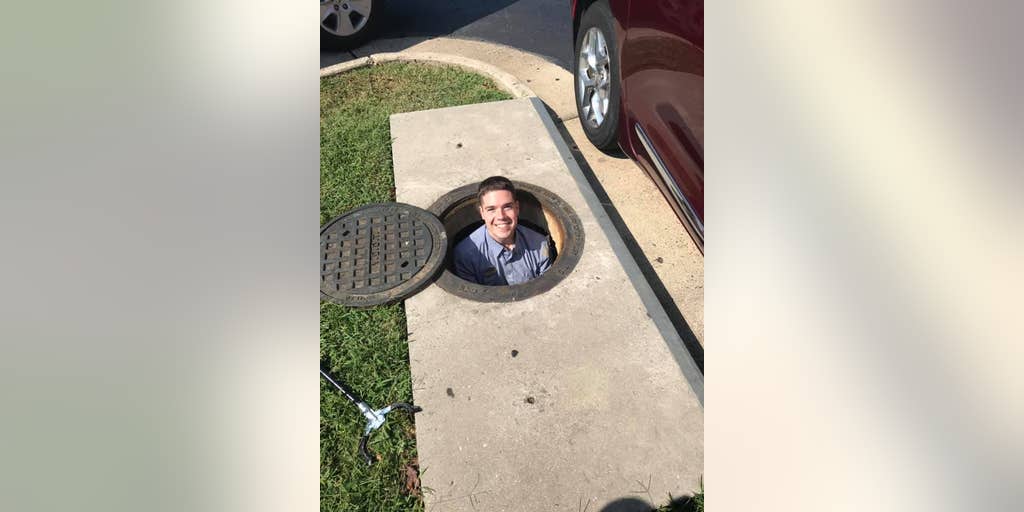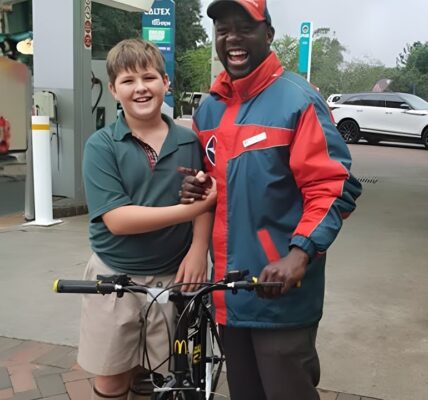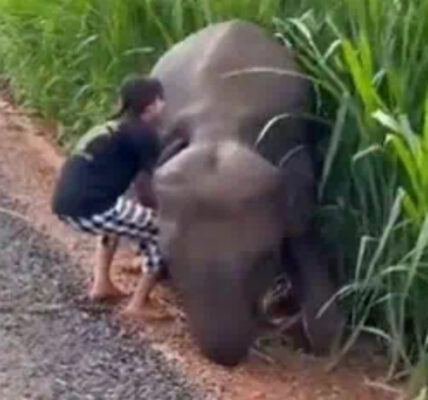It was just another evening on my way home from work, and I was pulling off the 5th Street exit when something caught my eye—a man slumped in his truck at the stop sign. At first, I wasn’t sure what I was looking at, but as I got closer, the situation became clear: he was unconscious, convulsing, vomiting, barely breathing. My heart raced as I pulled over and immediately dialed 911, giving them every detail I could—his condition, his position, the traffic around us.

As I stayed on the line with the dispatcher, I found myself directing cars around the man’s truck. People were slowing down, some even stopping to gawk or take pictures. A couple of them asked me, “Is this from heroin?” All I could do was shout at them, “MOVE! You’re blocking traffic and not helping at all!” My focus was only on keeping him safe until professional help arrived.
The first police officer on the scene approached, leaned into the truck, and without hesitation, declared that the man was overdosing. I understand the epidemic we’re in and how often officers see overdoses—but what struck me was how quickly judgment was passed. Did he really need to see every detail to assume the worst? From the outside, looking at this man as a person rather than a statistic was urgent, necessary, and human.

Soon after, the ambulance arrived, and paramedics jumped into action, assessing him, checking vitals, and stabilizing him for transport. They asked if he had been using drugs or drinking, and the man said no. I expected skepticism, but then they pressed further: “Why are you sweating so much? What happened?” And he quietly responded, “I’m diabetic.”
Diabetic. That simple word explained everything. A condition millions live with every day had put him in a life-threatening situation that could have been mistaken for something entirely different. Paramedics searched his car and found nothing, confirming there was no foul play or substance abuse—just a human being caught in a medical emergency.

As they loaded him into the ambulance, the couple who had stopped before me, and I, were told we could leave. Driving away, I couldn’t shake the weight of the moment. How quickly we jump to assumptions, how quick we are to judge someone when we know nothing of their story. This man could have been anyone’s father, son, brother, husband—or just a person in desperate need of help. That should be all that matters.
I’m sharing this story because it’s a reminder: not every unconscious or unresponsive person is an addict. Not every emergency is what it first appears. And even if it is, even if someone has made choices we wouldn’t, that doesn’t strip away their humanity. When someone’s life is at risk, judgment has no place—only action, empathy, and care.
What happened that night will stay with me. It’s a lesson in compassion and the importance of seeing the person behind the situation. It’s a reminder that even in moments of chaos, “it takes a village,” and sometimes all it takes is stopping, helping, and recognizing that every life is valuable.




